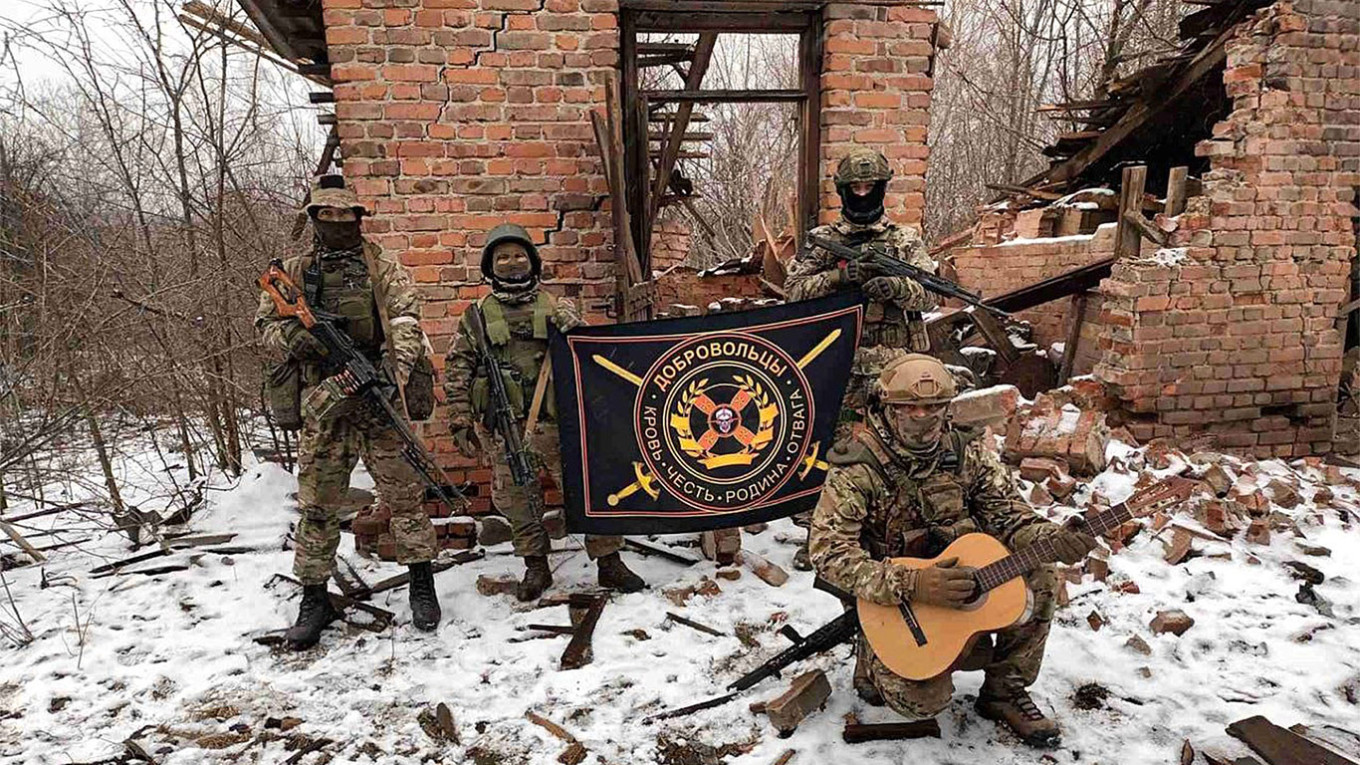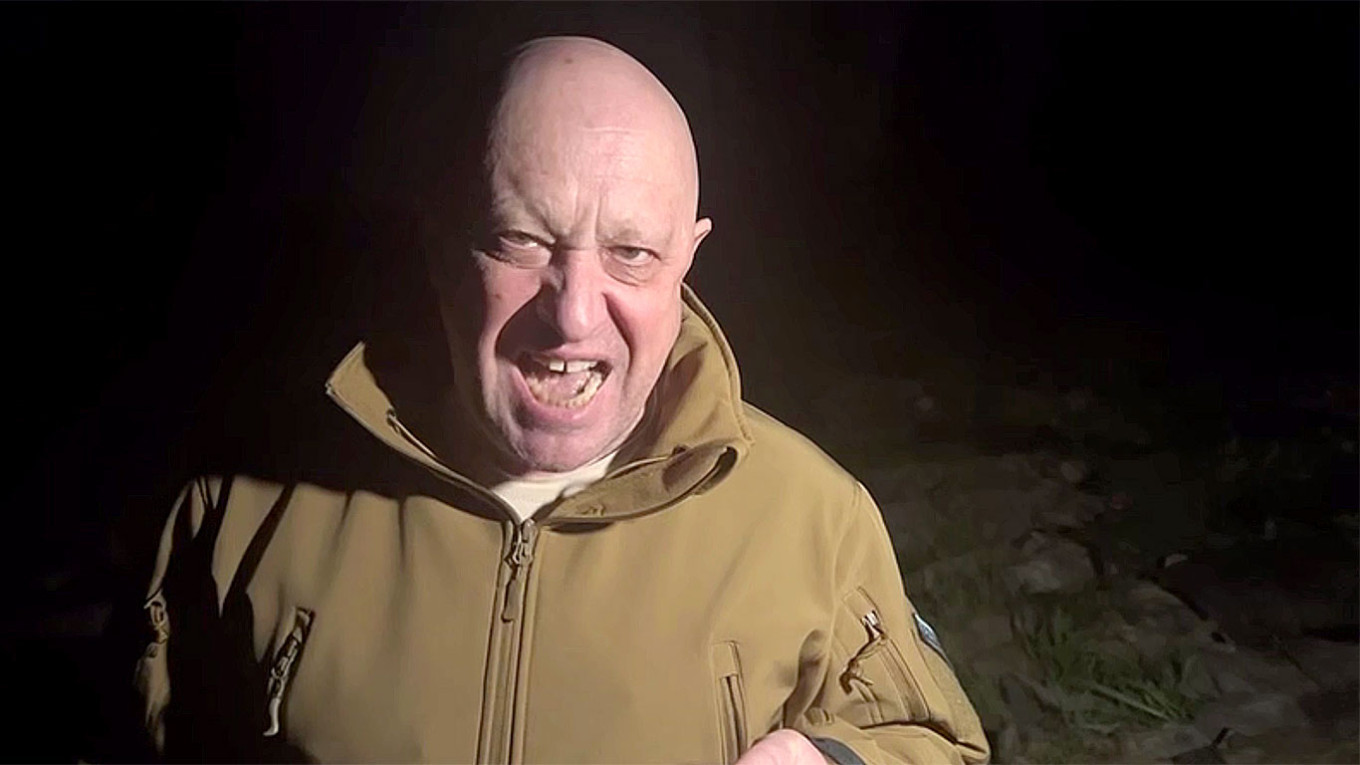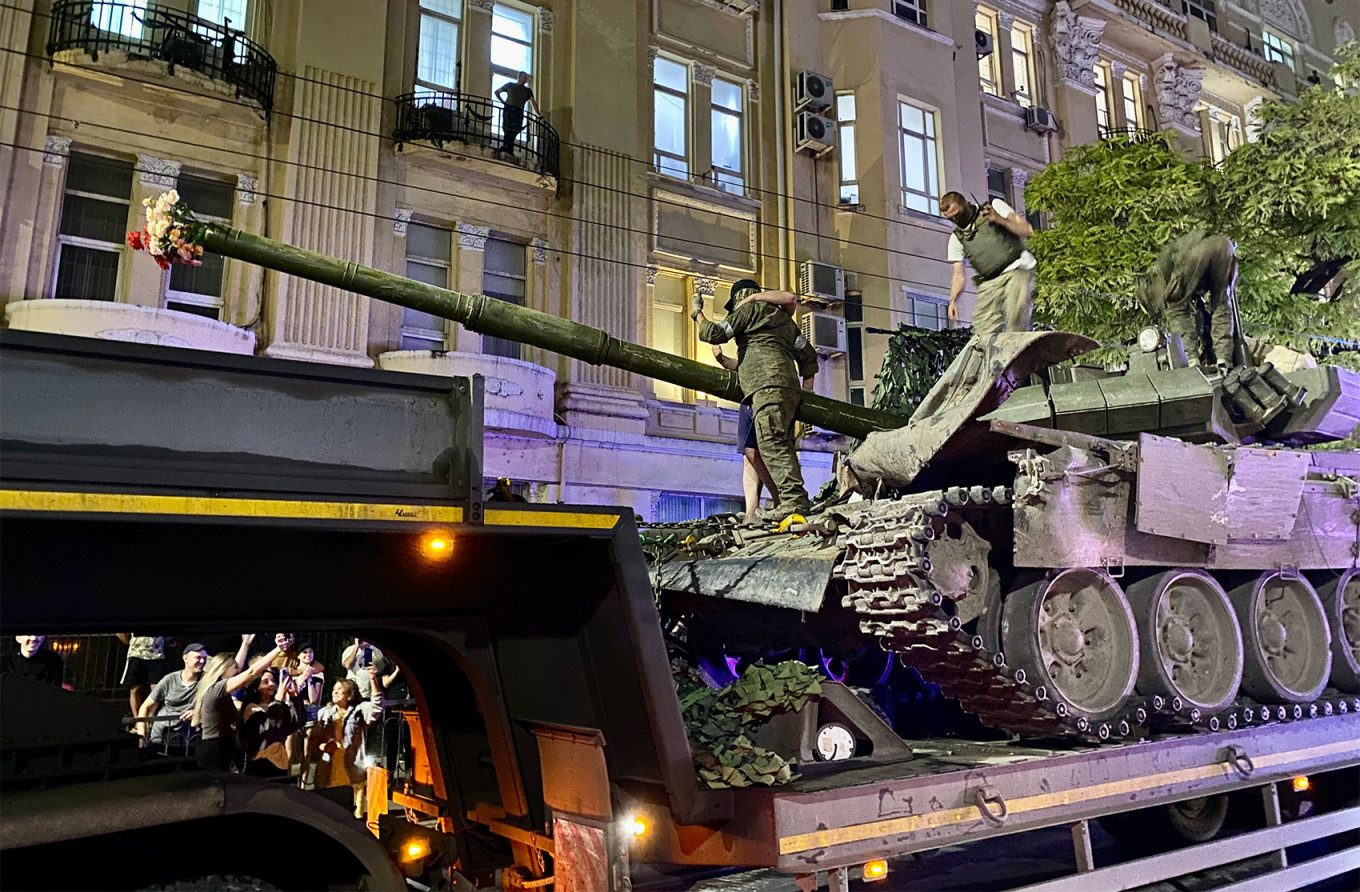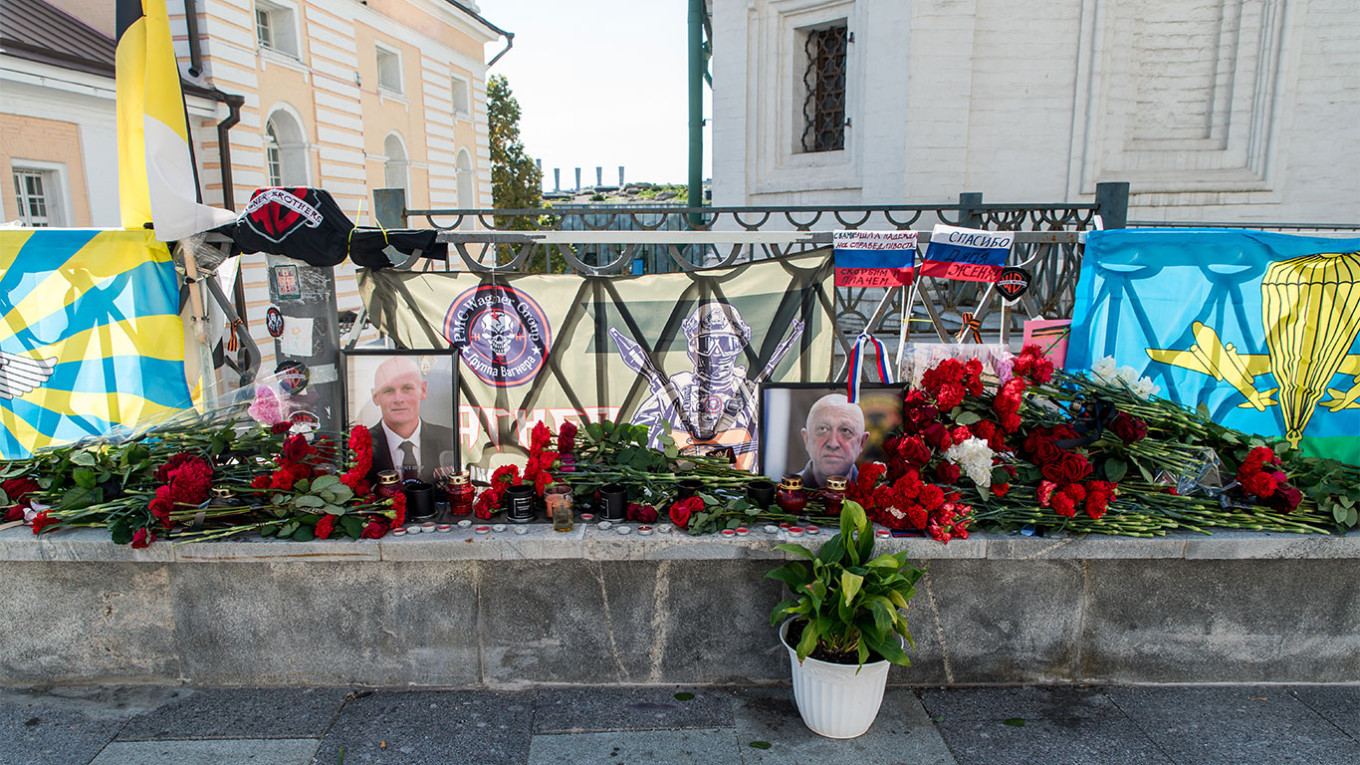If one story dominated the headlines from Russia in 2023, it was the rise and the fall of the murky and brutal Wagner mercenary group — and of its leader, the late Kremlin-linked catering magnate Yevgeny Prigozhin.
Wagner rose to prominence as one of the driving forces of Russia’s invasion of Ukraine starting in mid-2022. This year saw the group recruit convicts from Russian prisons en masse, claim gains on the battlefield, enter a bitter feud with the Defense Ministry and launch a shocking mutiny against the military’s top brass.
Here is a timeline chronicling Wagner’s highs and lows throughout the year:
January
Wagner, which had covertly operated in several conflicts worldwide before the invasion of Ukraine, is registered as a joint-stock company in St. Petersburg.
On the frontlines in Ukraine, Prigozhin says that his troops singlehandedly captured the eastern Ukrainian salt-mining town of Soledar.
The announcement of the largely symbolic victory is the latest episode in the emerging rift between the mercenary group and the Defense Ministry, which credits its forces for the capture of Soledar.

February
The feud between Prigozhin and the Russian military continues, with the Wagner head criticizing Russia’s military “monstrous” bureaucracy and accusing the Defense Ministry of low supplies of munitions to Wagner and “treason.”
Prigozhin also says Wagner will end its recruitment of prisoners to fight in Ukraine, with reports emerging that the Defense Ministry has intensified its own recruitment from prisons for the war.
“The recruitment of prisoners in the Wagner PMC has completely stopped,” Prigozhin says.
March-April
Following Wagner’s plea to the Defense Ministry to supply its fighters in Ukraine with urgently needed ammunition, the mercenary group says it has been cut off from all government communication channels.
Prigozhin also starts reporting Wagner’s casualties in contrast to the Defense Ministry, which hasn’t updated the number of its war losses since September 2022.

May
The arms delivery saga appears to reach its boiling point after Prigozhin — surrounded by the bodies of dead Wagner soldiers — threatens to pull out of the eastern Ukrainian city of Bakhmut, where his soldiers played the main role in the fighting.
“Shoigu, Gerasimov, where the f**k is the ammunition?” he said in a video published online.
The same month, Wagner claimed total control of Bakhmut — another largely symbolic victory after the nearly destroyed city was at the epicenter of fighting between Russia and Ukraine for months. Wagner is believed to have expended huge numbers of fighters in its push to capture the city in a tactic described as a “meat grinder.”
June-July
Defense Minister Sergei Shoigu orders all “volunteer detachments” to sign contracts with the ministry by the end of the month — a request that Prigozhin publicly refuses to follow.
“Wagner will not sign any contracts with Shoigu,” Prigozhin says.
On June 23, Prigozhin launches a rebellion against Russia’s military leadership, which experts see as the biggest domestic security crisis of Putin’s 23-year rule. His fighters take control of Rostov-on-Don and advance north through the Voronezh region.

Before the mutiny, Prigozhin was preparing to attend a State Duma session to deliver a harsh criticism of the military top brass to win back Putin’s approval — but his plans were canceled at the last minute, The Moscow Times learned.
Some 24 hours later, as Prigozhin’s men close in on Moscow, the Kremlin says the mutiny is resolved thanks to mediation from Belarusian President Alexander Lukashenko. Under the deal, Prigozhin and Wagner agree to relocate to Belarus in exchange for immunity.
As Prigozhin and his men depart Rostov-on-Don, crowds of locals are seen cheering them on.
Russian authorities raid Prigozhin’s businesses.
Wagner also announces it has suspended the recruitment of new fighters.
Despite agreeing to go into exile in Belarus, Prigozhin evidently continues to walk free in Russia, appearing at the Russia-Africa Summit in St. Petersburg.
August
Two months after Prigozhin’s aborted mutiny, a plane carrying Prigozhin, 62, and senior Wagner figures crashes northwest of Moscow — killing everyone on board.
Russia’s Investigative Committee opens a criminal case into the violation of traffic safety rules.
Putin expresses “condolences” over Prigozhin’s death, describing him as a man who made mistakes but “achieved results.”
The Kremlin calls rumors of possible foul play in Prigozhin’s death an “absolute lie.”

Prigozhin is quietly buried at St. Petersburg’s Porokhovskoe cemetery.
Makeshift memorials to Prigozhin appear in several Russian cities.
Although Putin personally bestowed Prigozhin with the Hero of Russia title — a status that implies a lavish funeral ceremony — the presidential administration and security services purposely keep the funeral a secret, The Moscow Times learns.
September
The Kremlin denies accusations that the investigation into the plane crash is too slow despite no update on what may have caused the crash in more than three weeks.
October-December
Despite a growing number of reports that ex-convicts and former Wagner fighters are committing crimes at home after being pardoned in exchange for their military service in Ukraine, Wagner’s popularity among Russians appears to endure.
Wagner disbands and its fighters are transferred to units under the Russian Armed Forces’ control.
A group of Prigozhin’s supporters asks authorities in St. Petersburg to rename a city street in his honor and to erect a monument to him.
“Yevgeny Viktorovich [Prigozhin] left an indelible mark on the country, evidenced by the high honors and awards bestowed to him in his lifetime,” his supporters say.
… we have a small favor to ask.
As you may have heard, The Moscow Times, an independent news source for over 30 years, has been unjustly branded as a “foreign agent” by the Russian government. This blatant attempt to silence our voice is a direct assault on the integrity of journalism and the values we hold dear.
We, the journalists of The Moscow Times, refuse to be silenced. Our commitment to providing accurate and unbiased reporting on Russia remains unshaken. But we need your help to continue our critical mission.
It’s quick to set up, and you can be confident that you’re making a significant impact every month by supporting open, independent journalism. Thank you.